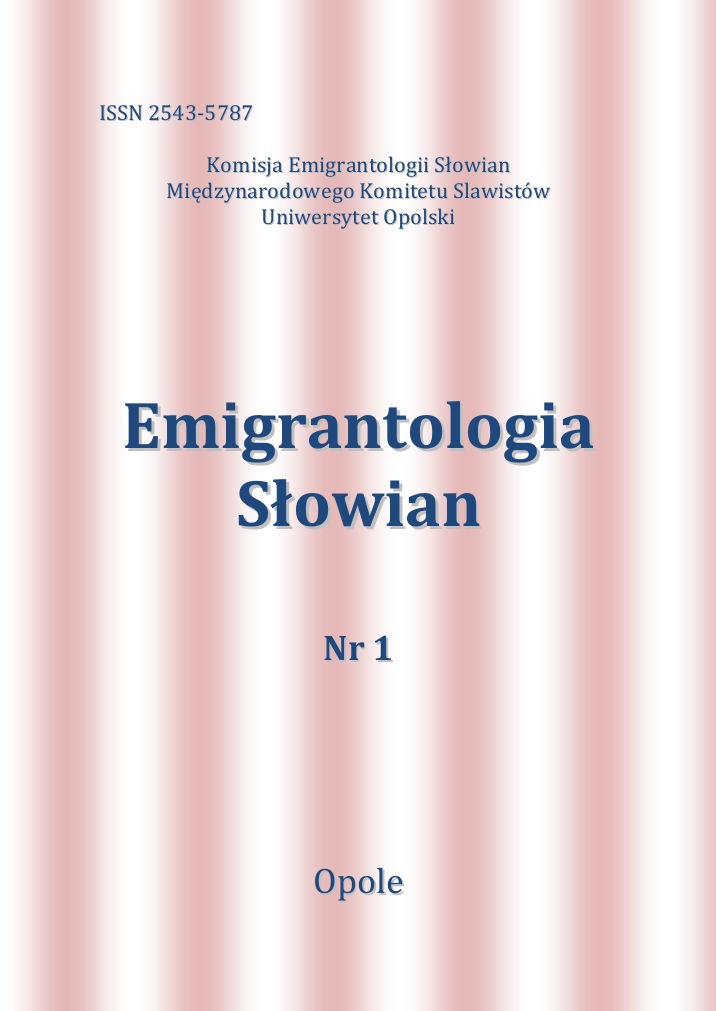Psalm 'Pochwała pracy' św. matki Marii z Paryża (Jelizawiety Skobcowej) jako koncepcja duchowego rozwoju człowieka
The psalm 'The praise of work' by Saint Maria of Paris (Elizaveta Skobtsova) as a conception of the spiritual development of a man
Author(s): Grzegorz OjcewiczSubject(s): Christian Theology and Religion, Poetry, Studies of Literature, Comparative Studies of Religion, Russian Literature, Pastoral Theology, Philology
Published by: Uniwersytet Opolski
Keywords: Mother Maria (Skobtsova); psalm; spiritual development; the banishment from Paradise
Summary/Abstract: The author of the following article analyses the psalm The praise of work written by Saint Mother Maria of Paris (Elizaveta Skobtsova). According to the scholar, the poem contains a clearly visible conception of the spiritual development of a man, for which Mother Maria finds analogy in the biblical fates of the ancestors, Adam and Eve. Mother Maria reasons that the man’s work with Christ in the soul and for Christ himself through unconditional love for the neighbour, through spiritual struggle and oftentimes exceptional physical fatigue is the only way leading to Heaven. Such effort must go hand in hand with inspiration, lightness of spirit, true engagement and pure love. People through their everyday struggle have been given a great chance to participate in the process of building the House of the Lord, the Church. Thus, as Mother Maria states, the human effort does not show the signs of profanity but rather elevation, as it is involves creating things which are beautiful and hallowed by the Creator. W niniejszym artykule autor poddaje analizie psalm św. matki Marii z Paryża (Jelizawiety Skobcowej) Pochwała pracy. Jego zdaniem, utwór ten zawiera bardzo czytelną koncepcję duchowego rozwoju człowieka, dla której matka Maria znajduje analogię w biblijnych losach prarodziców Adama i Ewy. Matka Maria przekonuje, że praca człowieka z Panem Jezusem w duszy i dla samego Chrystusa przez bezwarunkową miłość bliźniego i ciężki wysiłek duchowy oraz ponadludzki niekiedy trud fizyczny, stanowi jedyną drogę wiodącą do Nieba. Wysiłek ten musi się łączyć z natchnieniem, lekkością ducha, ze szczerym zaangażowaniem, z doskonałą miłością. Człowiek przez swoje codzienne działania zdobył wielką szansę na współuczestniczenie w budowie Bożego Domu, Kościoła, i dlatego, uważa matka Maria, ludzki wysiłek nie ma znamion przekleństwa, lecz nobilitacji, ponieważ wiąże się z tworzeniem rzeczy pięknych i uświęconych pod czujnym okiem Stwórcy.
Journal: Emigrantologia Słowian
- Issue Year: 1/2015
- Issue No: 1
- Page Range: 63-75
- Page Count: 13
- Language: Polish

